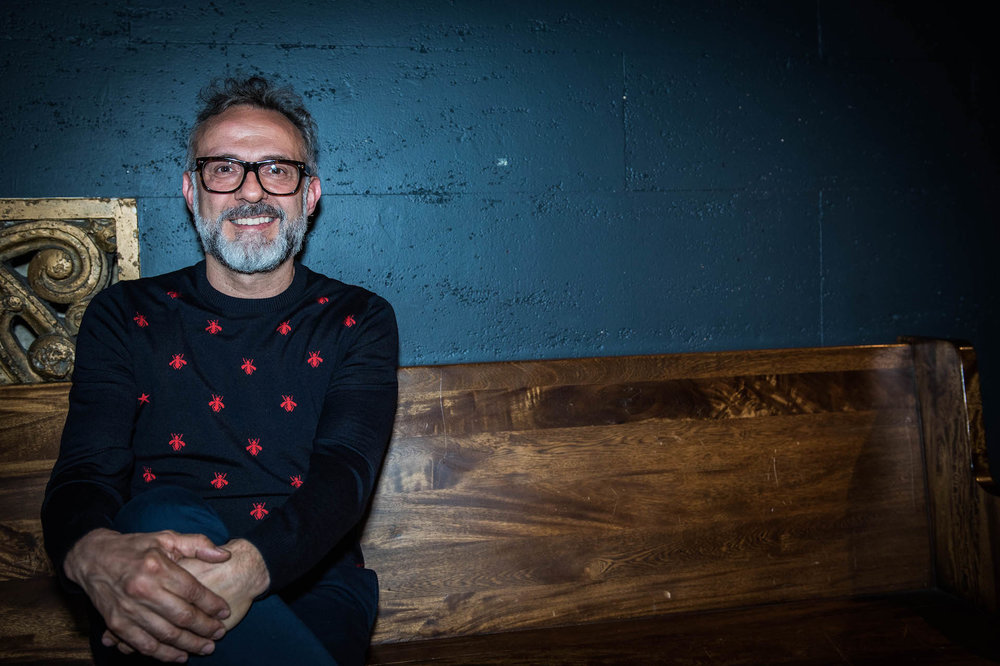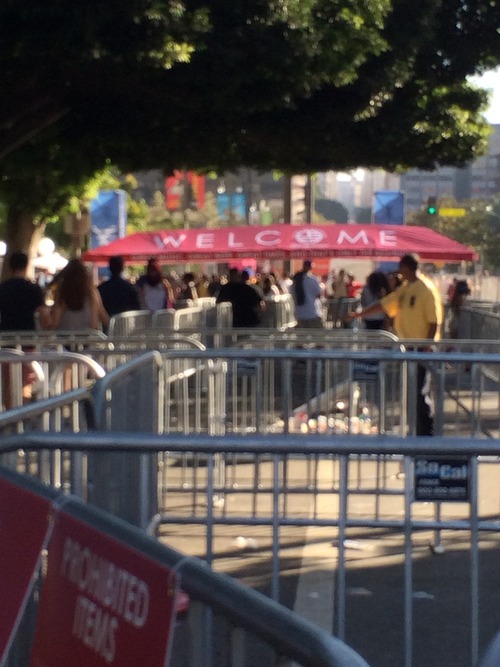 In 2017, the LA Times decided to host it’s first ever LA Food Bowl, a celebration of the local LA food scene while also highlighting issues of food waste, hunger, and sustainability. On Friday May 6, 2017, Chefs Mario Batali, Massimo Bottura, Roy Choi, Dominique Crenn, and Mary Sue Milliken spoke at a group panel at the Theater at the Ace Hotel in Downtown Los Angeles. There, they discussed issues of food waste and shared their projects of which they are working on to combat this issue. LA food critic Jonathan Gold moderated the talk.
In 2017, the LA Times decided to host it’s first ever LA Food Bowl, a celebration of the local LA food scene while also highlighting issues of food waste, hunger, and sustainability. On Friday May 6, 2017, Chefs Mario Batali, Massimo Bottura, Roy Choi, Dominique Crenn, and Mary Sue Milliken spoke at a group panel at the Theater at the Ace Hotel in Downtown Los Angeles. There, they discussed issues of food waste and shared their projects of which they are working on to combat this issue. LA food critic Jonathan Gold moderated the talk.
Massimo is the chef proprietor of Osteria Francescana in Modena, Italy. It was ranked #1 in San Pellegrino’s World’s Top 50 Restaurants and also boasts 3 Michelin stars. Massimo reached acclaim for his dish 5 Ages of Parmesan and was also featured in Netflix’s original series “Chef’s Table.”
Bottura opened up to George Ko of Giant Robot Media about Food Waste:
GR: What was your first experience with food waste?
Massimo: My first experience was many decades ago, when my grandmother was saying to me and my older brother, “Don’t leave food on the plate. There are children in the world that don’t have anything. You are disrespectful if you leave food on the plate.” This was my first experience. I grew up like that.
GR: How do you prevent food waste?
M: I think it’s a cultural thing. It’s not a charitable thing you can do. It’s cultural because you have to think about food waste in a different way. If you talk about an over ripe banana, or bread crumbs, or vegetables that are not picture perfect, you just have to ask the right question for these ingredients, how we can use them. That’s why I decided to involve all the most influential chefs and ask what they can do with all of these type of ingredients. Throughout the years, we created something amazing with our knowledge and we transferred all of our knowledge to volunteers. There are 860 million people starving. 1.5 billion people are overweight, and 1.3 tons of food is wasted every year, about 33% of all the food.
First of all, “feed the planet” means “fight the waste. Second, transfer this kind of attitude to the people by transferring our knowledge to volunteers. And at the end, we also feed the needy. But that’s not our main priority with Refettorio Abrosiono (the soup kitchen Massimo built that only used the food waste from the 2016 Milan Expo). We need to show that this food can be done through beauty. That’s why I wanted to build these restaurants in a very spiritual way, through the beauty of art, architecture, and design, to rebuild the dignity of the people.
GR: What’s your favorite dish that you have made with food waste?
M: Easy. Warm cup of milk, breadcrumbs, a little bit of sugar, and a little touch of chocolate or coffee, depends what I would add. This was my favorite meal before going to bed when I was a kid. We already transformed this memory into a dish called “Bread is Gold”. It’s a mixture of different techniques using bread, milk, and sugar. The book that is coming out next fall will be called Bread is Gold, which is using these ordinary ingredients to make exceptional recipes.
GR: Is there a favorite place you eat at right now?
M: Right now, every kind of food that is good is something that I love. Now, my mother and father are no longer with me. My family now are my friends that travel with me, my friends that our chefs. Even today, I was at Spago and Wolfgang (Puck) cooked for me a special lunch and it was emotional for me.
GR: Do you have a favorite place in LA?
M: A lot. I’ve been in LA these past 5-6 days and I’ve tried many different restaurants like at any of Roy Choi’s places. I was at the Hotel Bel-Air with Chef Hugo (Bolanos). I ate at Providence yesterday night. I’ve tried so many places. I used to have this idea that San Francisco was the gourmet place in the west coast of the U.S. But, you have to check out LA and the sparkle it has right now because it’s growing so much.
GR: Any last words of advice on food waste?
M: Buy seasonally. Give yourself half an hour every couple of days to shop and go back home, cook whatever you have. When it’s over, dedicate another hour or half an hour to shop seasonally. When you cook seasonally you save money, and when you cook everything you have you save money too. This way, you help the environment.




